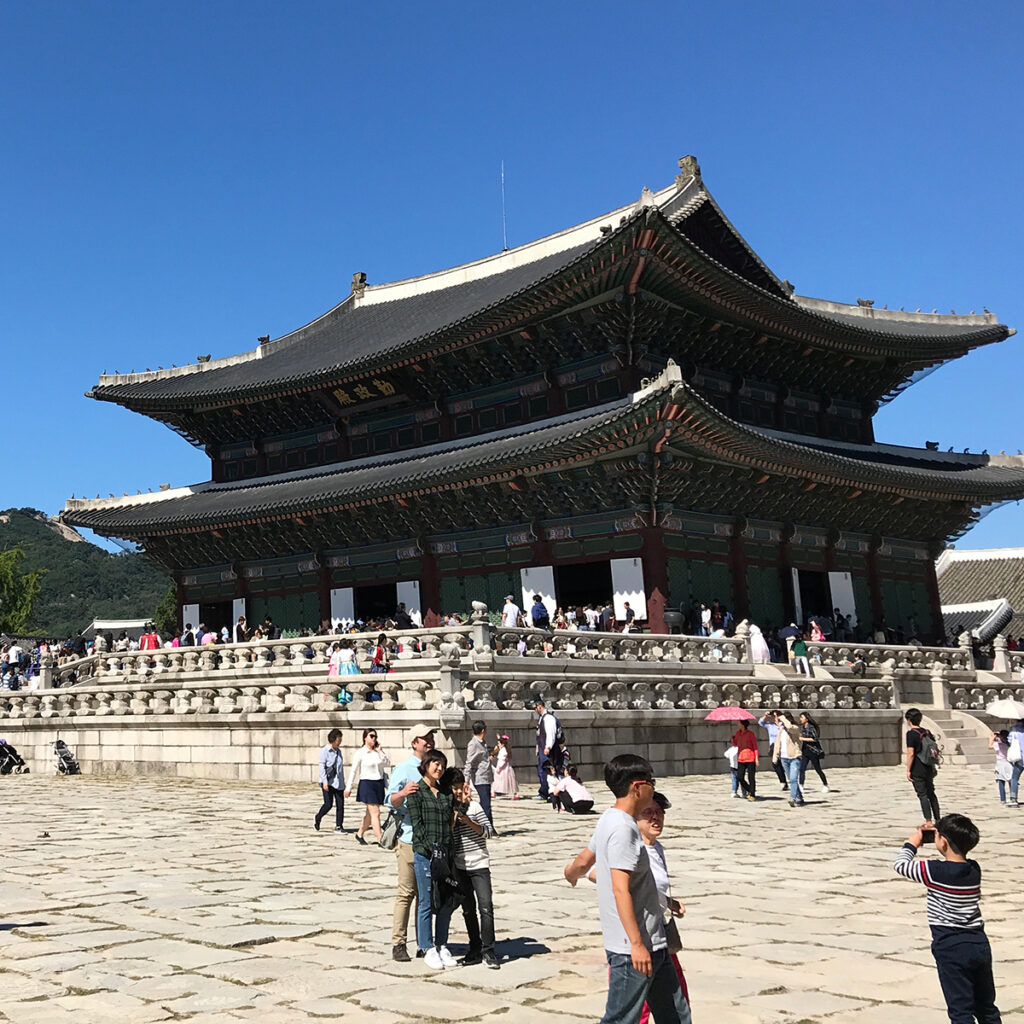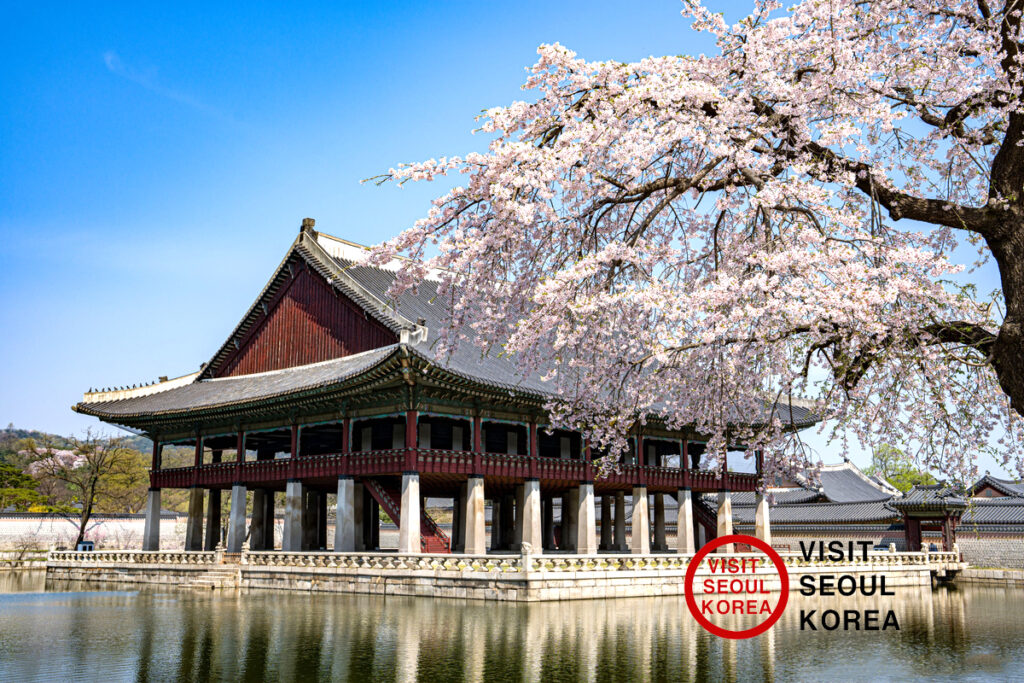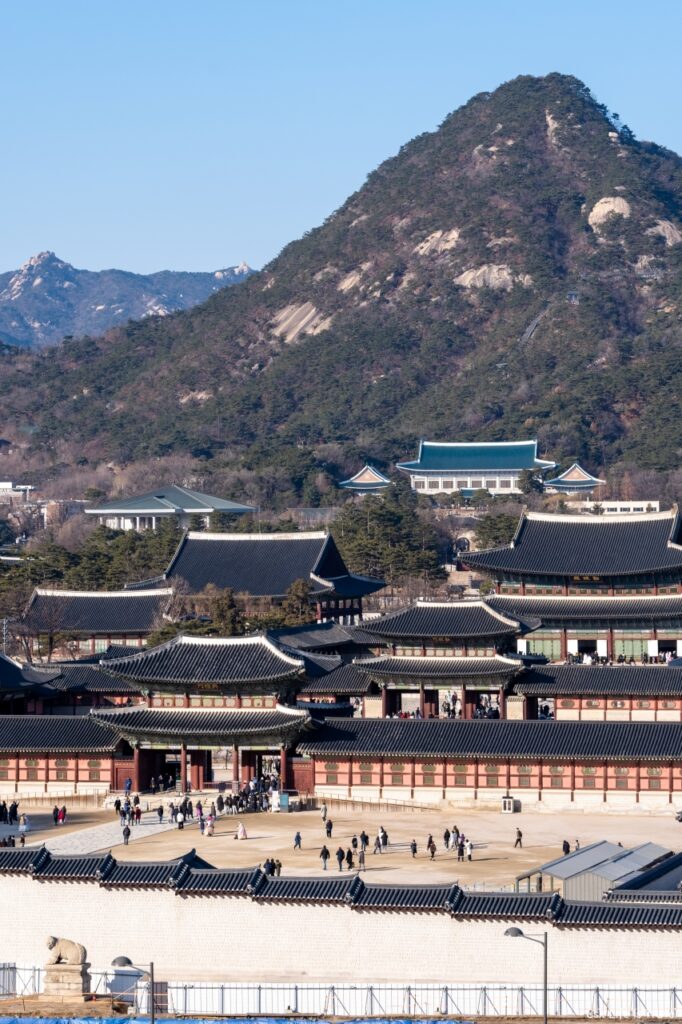If you’re visiting Seoul, you absolutely must see Gyeongbokgung Palace 경복궁 – an iconic landmark that reveals Korea’s rich cultural history and stunning traditional architecture. Whether you’re a fan of history, architecture, or simply want a picturesque place to wander, Gyeongbokgung offers an immersive experience that’s bound to captivate you.

Why Visit Gyeongbokgung Palace?
Built in 1395, Gyeongbokgung (meaning “Palace Greatly Blessed by Heaven”) was the main royal palace of the Joseon Dynasty and is one of the “Five Grand Palaces” of Seoul. Despite facing damage during invasions, the palace has been carefully restored and offers a vivid look into Korea’s heritage.
| Reasons to Visit | Highlights |
|---|---|
| Historical Significance | Main palace of the Joseon Dynasty with restored grandeur |
| Architectural Beauty | Traditional Korean buildings with intricate details |
| Cultural Insight | Hanbok rentals, traditional ceremonies, and performances |
| Serene Landscapes | Beautiful gardens, lakes, and scenic walking paths |
Key Highlights of Gyeongbokgung
| Attraction | Description |
|---|---|
| Geunjeongjeon Hall | Main throne hall, where the king conducted state affairs |
| Gyeonghoeru Pavilion | Stunning pavilion overlooking a lotus pond, used for banquets and gatherings |
| Hyangwonjeong Pavilion | A picturesque garden pavilion surrounded by water, perfect for photos |
| National Folk Museum | A museum inside the palace showcasing traditional Korean artifacts |
Activities You Shouldn’t Miss

One of the most unique parts of the Gyeongbokgung experience is the chance to wear a Hanbok (traditional Korean clothing). Hanbok rentals are available near the palace, and wearing one allows you free entry into Gyeongbokgung—a fantastic way to immerse yourself in Korean culture.
| Activity | Details |
|---|---|
| Hanbok Rental | Dress up in traditional attire; rentals are conveniently available near the palace entrance. |
| Changing of the Guard | A traditional ceremony that recreates Joseon-era military rituals; held daily at the main gate. |
| Museum Visit | Explore the National Folk Museum to learn more about Korean history and traditional customs. |
When and How to Visit
Gyeongbokgung is easy to reach by public transportation, and its central location makes it a convenient stop on any Seoul itinerary.
| Details | Information |
|---|---|
| Location | 161 Sajik-ro, Jongno-gu, Seoul |
| Subway Access | Gyeongbokgung Station (Line 3), Exit 5 |
| Opening Hours | 9:00 AM – 6:00 PM (Closed Tuesdays) |
| Admission Fee | ₩3,000 for adults; free entry if wearing Hanbok |
| Best Time to Visit | Late morning or late afternoon for cooler weather and softer lighting for photos |

Tips for an Unforgettable Visit
- Visit During Spring or Autumn: The cherry blossoms in spring and the fall foliage create breathtaking backdrops around the palace grounds.
- Arrive Early or Late in the Day: To avoid crowds, plan to visit just after opening or close to the evening.
- Wear Comfortable Shoes: Gyeongbokgung’s grounds are vast, so comfortable footwear is essential for exploring.
- Catch the Guard Ceremony: Scheduled multiple times daily, the ceremony adds a unique touch to your visit.
Nearby Attractions
After exploring Gyeongbokgung, you’ll find several other attractions nearby that complement your visit and enrich your Seoul experience.
| Nearby Attractions | Description |
|---|---|
| Bukchon Hanok Village 북촌 한옥마을 | A historic village with traditional Korean houses, shops, and tea houses |
| Insadong 인사동 | A cultural street offering traditional crafts, souvenirs, and street food |
| Samcheong-dong 삼청동 | A neighborhood known for its art galleries, cafes, and unique boutiques |
| Cheonggyecheon Stream 청계천 | A modern stream area, perfect for a relaxing walk after your palace tour |
Gyeongbokgung Palace is a journey back in time that will not only help you understand Korean heritage but also leave you with unforgettable memories. Whether it’s through the breathtaking architecture, serene gardens, or engaging cultural experiences, Gyeongbokgung is a place where history and beauty converge, making it a must-visit on your Seoul adventure.
Leave a Reply